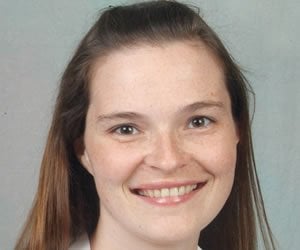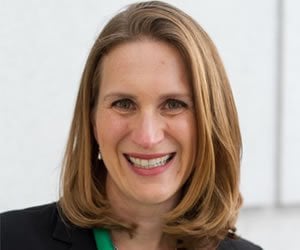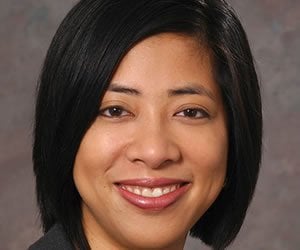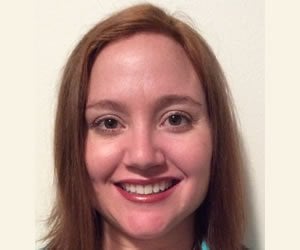
Medical School
“Go forth and do great things.” – Anonymous No one gets into medical school without a considerable dose of ambition. We want to be involved, to make a difference, to save lives. In short, we ... Read more
Megan Riddle
Updated June 27, 2022 by Megan Riddle

Medical
You’ve volunteered. You get good grades. You’ve shadowed doctors. You’ve done everything you can to be a great student and ideal candidate for professional schooling. What more can you do to make yourself stand out ... Read more
Marissa Sutera
Updated March 19, 2019 by Marissa Sutera

Medical School
“Knowing yourself is the beginning of all wisdom.” – Aristotle Even at the time, I realized it was an exquisitely simple task: I had to walk into the exam room, introduce myself as a medical ... Read more
Megan Riddle
Updated June 27, 2022 by Megan Riddle

Veterinarian Q&A
Deborah Elaine Linder, DVM, is a board certified veterinary nutritionist and a research assistant professor at Tufts Cummings School of Veterinary Medicine. She received her bachelor’s degree in biological anthropology and anatomy from Duke University ... Read more
Juliet Farmer
Updated June 27, 2022 by Juliet Farmer

Physician Q&A
Dr. Judy Melinek is a board-certified forensic pathologist in San Francisco, CEO of PathologyExpert Inc., an associate professor of pathology at University of California San Francisco, and co-author (with her husband, T.J. Mitchell) of the New ... Read more
Juliet Farmer
Updated June 27, 2022 by Juliet Farmer

Medical School
Choosing a field of medicine is likely the most important decision a medical student will make during their career. The vast majority of residents complete their residencies and practice in the field in which they’ve ... Read more
Mimi Knoll
Updated June 27, 2022 by Mimi Knoll

Physician Q&A
Kornelia Polyak shares her thoughts on the field of medical oncology and offers some advice for students.
Juliet Farmer
Updated June 27, 2022 by Juliet Farmer

Pre-Medical
Earning a medical school admissions interview is a significant accomplishment. Many programs adhere to rigorous academic, extracurricular, and research requirements when selecting candidates for in-person meetings. Though you should view this as an opportunity to ... Read more
Anubodh “Sunny” Varshney
Updated June 27, 2022 by Anubodh “Sunny” Varshney

Medical School
Studying medicine at English-taught medical schools overseas could provide good opportunities for some students.
Moshe Cohen
Updated June 27, 2022 by Moshe Cohen

Money
Avoid common business mistakes to make a smooth transition to private practice.
Kristen Gramigna
Updated June 27, 2022 by Kristen Gramigna

Medical School
When medicine burns you out, find strength in remembering why you're there.
Jarna Shah
Updated June 27, 2022 by Jarna Shah

Physician Q&A
Jennifer H. Yang shares her thoughts on the field of urology and offers some advice for students.
Juliet Farmer
Updated August 23, 2022 by Juliet Farmer

Pre-Medical
Keep these things in mind this year to help you prepare for your medical school application process.
AAMC Staff
Updated June 27, 2022 by AAMC Staff

Pre-Health
Strong interview preparation allows you to give meaningful thought to what qualities you bring to the table and why you might be a good fit for a particular school.
Deborah Gutman, MD, MPH
Updated June 27, 2022 by Deborah Gutman, MD, MPH

Medical School
A look at a day in the life of a third year student and what the clinical rotations experience entails.
Alex Cole
Updated June 27, 2022 by Alex Cole

Medical School
A look at a day in the life of a third year student and what the clinical rotations experience entails.
Alex Cole
Updated June 27, 2022 by Alex Cole

Pre-Medical
Early assurance programs (EAPs) allow dedicated students to apply to to medical school early, sometimes without taking the MCAT.
Deborah Gutman, MD, MPH
Updated June 27, 2022 by Deborah Gutman, MD, MPH

Medical School
Don't be surprised if your medical school experience changes the idea of the future you had envisioned for yourself.
Farah Kahn
Updated June 27, 2022 by Farah Kahn

Pharmacist Q&A
Karla Turney shares her thoughts on the field of pharmacy and offers some advice for students.
Juliet Farmer
Updated June 27, 2022 by Juliet Farmer

















